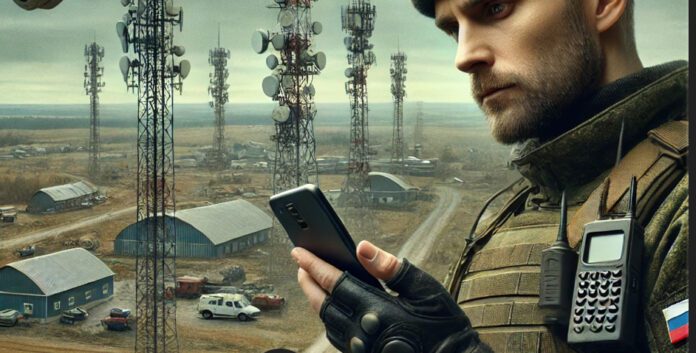Russian authorities have issued a strong warning to residents in the border regions of Bryansk, Kursk, and Belgorod, urging them to limit their use of dating apps and social media. This measure is part of an effort to prevent Ukrainian forces from gathering intelligence as their incursion into the Kursk region intensifies.
On Tuesday, Russia’s Ministry of Internal Affairs (MVD) released a statement on its official Telegram channel, advising residents in these areas, as well as military and police personnel stationed there, to refrain from using “online dating services.” The ministry also emphasized the importance of being cautious while streaming videos, especially from sensitive locations.
“The enemy actively uses such resources for information gathering,” the ministry stated, underscoring the risks associated with sharing real-time information online. The ministry’s advisory came as Ukrainian troops continued their advances through Russian territory, reportedly breaking through Russian defenses and capturing 93 settlements over the past week.
In addition to the restrictions on social media, authorities have warned that Ukrainian forces are connecting to unprotected CCTV cameras to monitor private yards and key roadways. As a result, the MVD has advised citizens to avoid clicking on hyperlinks from unknown sources and to stop live-streaming from areas where military vehicles or sensitive activities are present.
Military personnel, including troops and police officers, were specifically cautioned to remove all geo-tagging from their social media posts. “The enemy monitors social networks in real time through these tags,” the ministry warned, stressing that such data could reveal the precise location of Russian military and security forces.
The Ukrainian offensive into the Kursk region has significantly challenged Russia’s ability to secure its territory. According to Ukrainian military chief Oleksandr Syrskyi, Ukrainian forces have advanced up to 35 kilometers (21.7 miles) into Russian territory since the operation began. The incursion has prompted the evacuation of more than 121,000 Kursk residents, as reported by Russia’s Ministry of Emergency Situations.
The security risks associated with social media use in conflict zones are not new. Historical precedents show that soldiers can inadvertently reveal sensitive information through their online activities. For instance, last year, the United States and its “Five Eyes” intelligence partners reported that Russian hackers had targeted Ukrainian soldiers’ mobile devices to steal battlefield information.
Moreover, incidents like the killing of Russian submarine commander Stanislav Rzhitsky, who was allegedly tracked via a fitness app, highlight the dangers of using geo-tagged applications in war zones. Rzhitsky was reportedly tracked on Strava, a popular running app, while jogging on a routine route, leading to his assassination.
The issue also came to the forefront after a Ukrainian missile strike on New Year’s Day in 2023 killed nearly 100 Russian soldiers in Makiivka, an event attributed to the soldiers’ widespread use of cell phones. In response, Russian lawmakers have proposed punishing soldiers caught using smartphones in conflict zones, suggesting that such behavior be classified as a “gross disciplinary offense” with penalties including imprisonment.
These developments underscore the heightened security risks posed by digital devices in modern warfare, prompting countries like Russia, Ukraine, and even the United States to implement strict measures to protect sensitive information from being exploited by adversaries.





